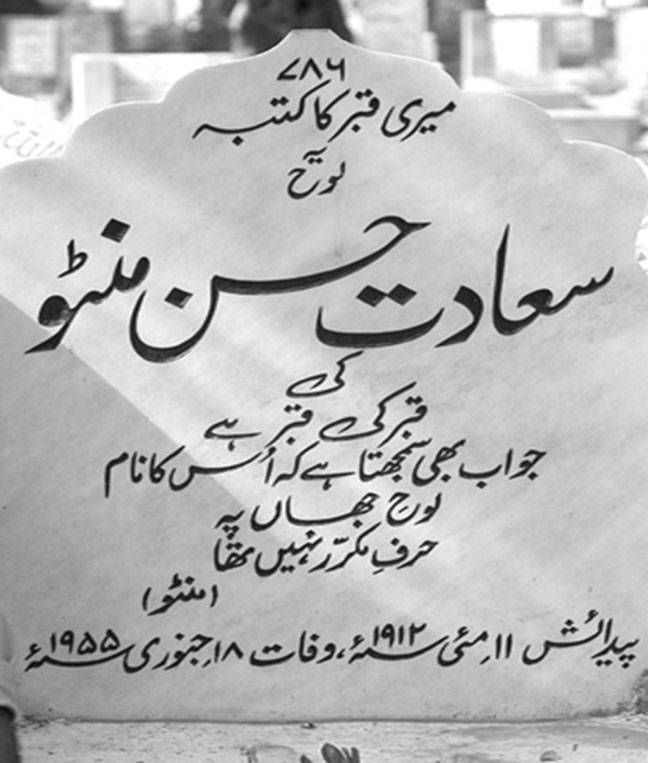“Fiction has been maligned for centuries as being “false,” “untrue,” yet good fiction provides more truth about the world, about life, and even about the reader, than can be found in non-fiction.” –Clark Zlotchew
The epitaph on the grave of Manto defines his personality.
The above-stated quote truly defines the works of Saadat Hasan Manto. Born on 11 May 1912 in Ludhiana, Manto is celebrated as the most celebrated Urdu short story writers of all times. Saadat Hassan Manto was a short story writer of Urdu language, in addition to being a film and radio scriptwriter and a journalist. Some of his most praised works include Thanda Gosht, Khol Do, Toba Tek Singh, Kali Shalwar, Mozaile and Babu Gopi Nath. He published twenty-two collections of short stories, one novel, five collections of radio plays, three collections of essays, and two collections of personal sketches.
The most defining phase of his literary life was the time when partition of India materialised. He produced some of his most outstanding literary pieces around the theme of partition. He was much inspired by Maupassant, Oscar Wilde, Maxim Gorky, Chekov and Dostoyevsky. He penned down his stories in the realist tradition. However, he also used the psychoanalytical technique to capture the violence when partition of Indian sub-Continent was announced.
While condemned by some of his contemporaries as a writer obsessed with obscenity, history has absolved him by declaring him the greatest short story writer of Urdu. While much attention is given to his fiction his non-fiction work also begs our attention. Especially his essays entitled “Letters to Uncle Sam” are distressingly prophetic on the direction that Pakistan was embarking on.






